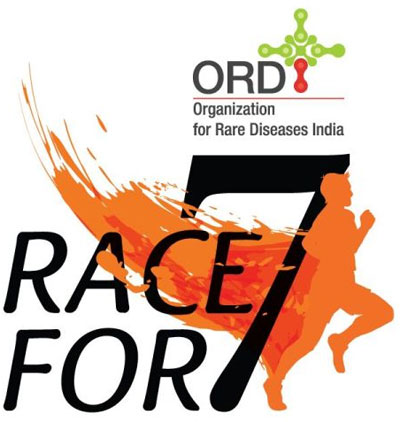Click Below Link:
https://www.linkedin.com/pulse/rare-disease-day-india-7-reasons-rejoice-arjun-gupta/?trackingId=
In this article, I would like to highlight 7 areas in which various stakeholders are making great strides in the Indian rare disease:
- At-least eight patient advocacy groups in India have made a huge impact in spreading awareness in the country, supporting various families with newly undiagnosed cases, influencing policy makers and even supporting continuous education in the medical community. ORDI alone has hosted 40 well attended webinars since June 2020 which according to me is an inspiring contribution. Many private companies such as LifeCell has sponsored some of these webinars, contributing to the cause.
- In the last decade Department of Biotechnology, Ministry of Science & Technology has taken five key initiatives such as Unique Methods of Management of Inherited Disorders (UMMID), GenomeIndia and Programme on Monogenic disorders. Under these programs large scale screening of pregnant women and neonates for inherited genetic diseases, cataloguing genetic variations in diverse population groups, training of clinicians in relevant analytical techniques, and consortia based R&D projects aiming to study genetic diseases. The government of Uttar Pradesh deserves a special mention since it has been providing SGPGI Lucknow financial support for free Thalassemia hypertransfusion therapy and free coagulant factors for treatment of Hemophilia.
- Many therapeutics, nutraceutical and special products companies catering to rare disease patients have emerged recently, which is a great sign for Indian rare disease ecosystem. Eyestem, Aten Porus Lifesciences, Indus Biotech and Pristine, Specialized Mobility Operations and Innovations and TerraBlue XT are some of the examples.
- From a handful of diagnostic laboratories offering genetic and cytogenetic testing in 2010, today we have about 53 NABL accredited laboratories offering genetic testing in India and the number is much higher since many new labs are emerging which are yet to pursue NABL accreditation.
- In the last decade, medical communities such as Indian Academy of Medical Geneticists (IAMG) and The Indian Society of Medical Geneticists (ISMG) have been formed in highly organized manner to not only support the medical community through conferences and webinars but also relevant government agencies in making informed public health decisions. The clinical research community seemed to have published 5x more scientific papers than in the last decade than than one before.
- While Medical Geneticists are by far one of the most critical stakeholders in the Indian rare disease ecosystem, Genetic Counselors are beginning to play a critical role in helping patients and in many cases even frontline clinicians learn about various aspects of specific testing options. Today, they are even a playing pivotal roles in the operations of molecular diagnostic laboratories and genetic departments of various hospitals. We are in gratitude of institutes like SGPGI Lucknow, Sir Ganga Ram Hospital in Delhi, Kasturba Medical College in Manipal, Vellore Institute of Technology, AIIMS New Delhi, PGI in Chandigarh, and Board of Genetic counseling in India that is producing quality Medical Geneticists and Genetic Counselors.
- On 27th April 2017, Indian Council of Medical Research (ICMR) launched the Indian Rare Disease Registry to comprehensively cover the spectrum of rare and ultra-rare disorders prevalent in the country. 20 centers across India along with 8 patient groups are contributing to this effort. (Image: ICMR website)
I’ve been part of the rare disease ecosystem since 2013 starting with analyzing the orphan drug industry at a venture capital fund in the Texas followed by working in couple of bioinformatics startups in Michigan and a genetic testing laboratory in India.
In the year of pandemic, Genetico has grown from a two person team working without salaries to an eight member team supported by Biotech Ignition Grant (BIRAC), NIDHI Seed Support Scheme from IIT Mandi Catalyst, private investors and grants from JKEDI. I wrote about my motivations behind founding Genetico in an article which was well received in the community.
Genetico aspires to be a part this growth story in the coming decade by offering cutting edge AI enabled suite of software to digitize the clinical genetics workflows, facilitate secure collaborations on complex cases, provide nation-wide infrastructure for patient-making to diagnose undiagnosed diseases and streamline test ordering and analysis for diagnostic labs.
Please sign-up for our early access program and join four leading rare disease clinics and a diagnostic lab in our invite only community.
For future updates, please sign-up for our newsletter on our website.
Thank you for investing your time to read this. If you have some interesting rare disease victories to share, please add to the comments section.






